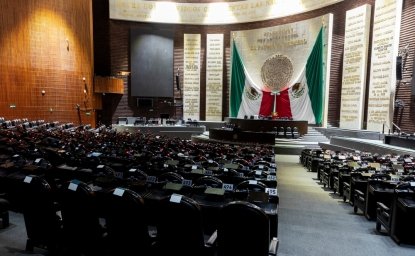Mexico’s newly elected president, Claudia Sheinbaum, will take office on October 1st. She’ll have just a year and a half to prepare for what will likely be one of the most important international meetings of her tenure: the first joint review of the US-Mexico-Canada Agreement (USMCA) that’s slated for July 1st, 2026.
It’s an understatement to say that Sheinbaum needs the review to go well. Mexico’s trade to gross domestic product ratio is 88% and the country sends over three-quarters of its exports to the US. Like her predecessor, Andres Manuel Lopez Obrador (AMLO), Sheinbaum has thus thrown her support behind USMCA, both to insulate Mexico from rising US protectionism, and to capitalize on Washington’s desire to “near-shore” crucial supply chains.
The next US administration, however, is not going to rubber stamp USMCA simply because it wants to reduce trade with China and bring manufacturing closer to home. On the contrary, this review will take up questions about implementation and compliance, and the reality is that Mexico isn’t living up to some of its obligations under USMCA, notably on intellectual property (IP) rights.
As the United States Trade Representative (USTR) observes in its 2024 Special 301 Report, while the AMLO Administration has pursued “significant legislative reforms” to comply with USMCA’s IP obligations, significant shortcomings, including the lack of implementing regulations, continue to create uncertainty for the creative and innovative sectors looking to protect and enforce IP in Mexico.
For example, when the USMCA entered into force on July 1, 2020, Mexico was immediately responsible for implementing an effective patent enforcement system which ensures that patent-infringing generic or biosimilar medicines do not receive marketing authorizations prior to the expiration of patents associated with the innovative products. Four years later, biopharmaceutical innovators are still waiting for Mexico to issue implementing regulations and come through on its patent enforcement commitments.
Likewise, Mexico has until next year to come into compliance with USMCA’s obligations on “patent term restoration” (PTR) and “regulatory data protection” (RDP). Mexico is an outlier among many OECD countries by not granting PTR to compensate for lengthy delays with the regulatory review process. This takes many years off a patent’s 20-year lifespan. Mexico has yet to issue implementing regulations to comply with this commitment.
RDP provides temporary protection for the comprehensive package of information biopharmaceutical innovators must submit to regulatory authorities to demonstrate the safety and efficacy of a medicine for marketing approval. This is particularly important for biologics, which may not be adequately protected by patents alone. To incentivize investments in these cutting-edge drugs, governments protect RDP. Innovators are still waiting for Mexico to issue federal legislation implementing regulations to provide RDP for all pharmaceutical products.
Sheinbaum will enjoy the political support needed to enact these and other IP reforms on Day 1. Her Morena party, along with coalition partners, won a supermajority of seats in the Chamber of Deputies, and did nearly as well in Mexico’s Congress. Her messaging should draw attention to the results of a 2021 study by the European Union and IMPI that found that IP accounts for one third of Mexico’s jobs.
Washington is already making it clear that it will press Mexico to comply with its IP obligations at the review. As Representative Greg Steube (R-FL) recently explained to the House Ways and Means Committee, “Mexico has yet to fully implement key commitments in the USMCA intellectual property chapter.” USTR points to this and other concerns in keeping Mexico on its Special 301 “watch list” of countries that are especially lax in protecting US IP.
On October 1st, Sheinbaum should begin the legislative process of enacting Mexico’s long-promised IP reforms to comply with USMCA. Anything shy of this will cast doubt on Mexico’s commitment to the trade pact, and its future as a trusted trade partner in US efforts at near-shoring.
Author

Karl F. Landegger Professor of International Business Diplomacy at the Edmund A. Walsh School of Foreign Service at Georgetown University

Wahba Institute for Strategic Competition
The Wahba Institute for Strategic Competition works to shape conversations and inspire meaningful action to strengthen technology, trade, infrastructure, and energy as part of American economic and global leadership that benefits the nation and the world. Read more





